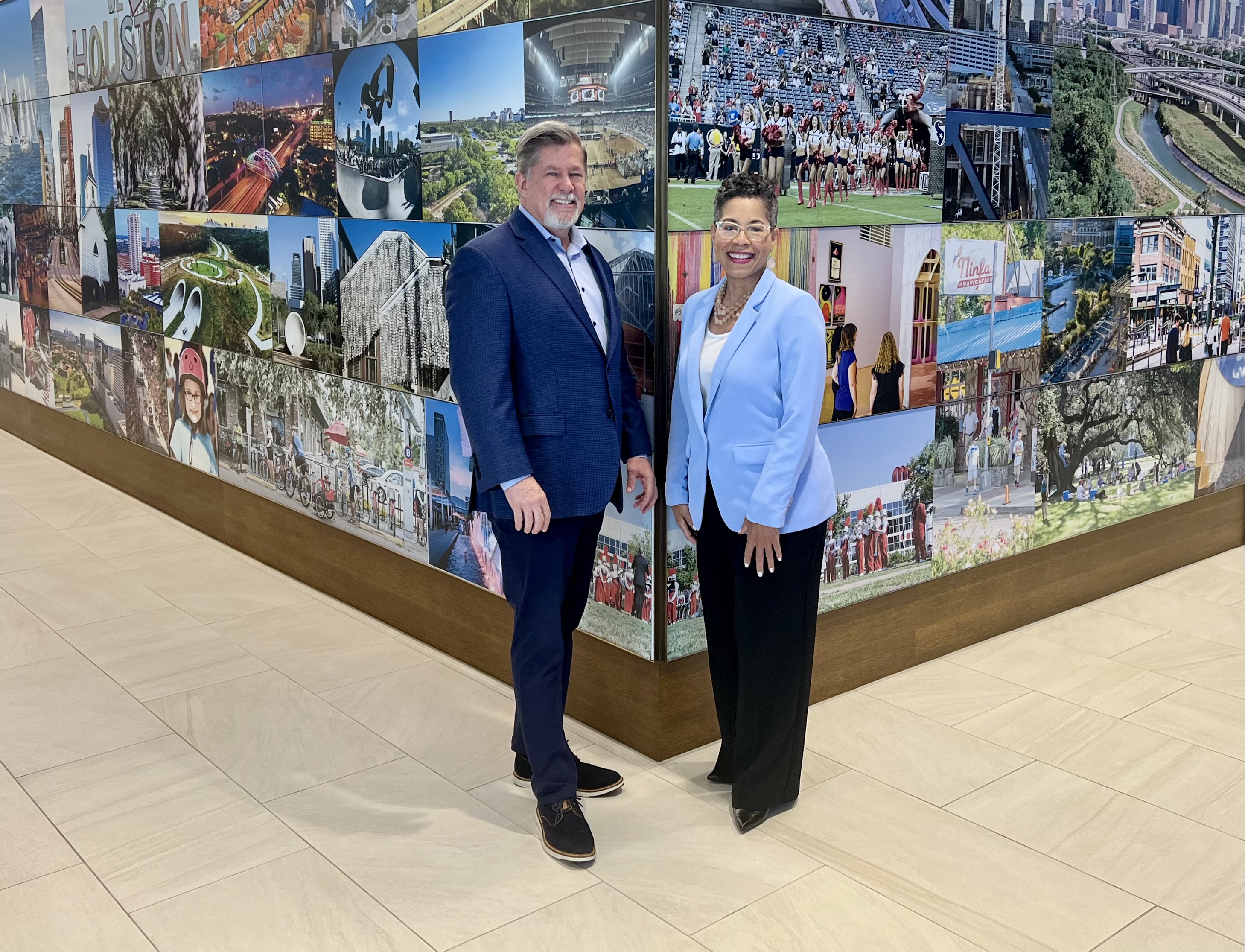One Houston Together: Realizing Opportunity in Supplier Diversity
Published Jul 21, 2022 by A.J. Mistretta
The first installment of the Partnership’s new One Houston Together webinar series focused on Opportunities in Supplier Diversity, offering insight from a new report on the impact of minority businesses in the region and perspective from a local energy company that’s launched a successful supplier diversity program.
LaTanya Flix, Senior Vice President, Diversity, Equity and Inclusion at the Partnership, moderated the discussion and gave an overview of the structure and key objectives of One Houston Together as well as the definition of supplier diversity and its significance to our region.
- Ziba Mehra, Director of Purchasing, Calpine shared a corporate perspective on establishing a robust supplier diversity program.
- Ingrid Robinson, President, Houston Minority Supplier Development Council (HMSDC) discussed trends and MBE growth in the Houston region.
- Roel Martinez, Vice President Research at the Partnership shared findings from the recently released Minority Business Enterprise (MBE) Economic Impact Analysis, produced in collaboration with HMSDC.
Here are a few key takeaways from the conversation:
- Growing spending with minority business enterprises is one of two priority areas of One Houston Together. Flix shared that the supplier diversity workstream includes a Supplier Diversity Roundtable that meets 4-5 times a year, as well as a newly established Houston Buyer Cohort and a Chief Procurement Officer (CPO) Convening. “We have one big goal: to help make Houston one of the most equitable and inclusive business communities in the country,” Flix said.
- Martinez highlighted key findings of the recently published Houston MBE Economic Impact Analysis. MBEs are defined as businesses that are at least 51% owned, managed or controlled by Black, Hispanic, Asian Indian, Asian Pacific or Native American individuals. The report found that:
- 771 certified MBEs are operating in metro Houston across 18 different sectors, with the largest number in professional services.
- The vast majority of these companies are operating in the business-to-business arena and nearly half have revenues of $1 million or more annually.
- Collectively these companies reported revenues totaling $8.2 billion in 2020.
- Correlations between revenue and employee counts and industry sector, race and revenue.
- While the report focused on data from 2020, Robinson said HMSDC is seeing significant growth in the number of certified MBEs, which totaled 850 companies at the end of last year. And while most of the newly launched businesses are in the professional services sector, there’s also growing diversity in the sectors represented, Robinson said. “I definitely see more growth happening this year as well, including more interest in places like energy transition where there’s a lot of excitement.”
- Robinson said the largest opportunity for growth is in what’s called the middle market or secondary supplier space where prime suppliers working with large corporations can develop partnerships with growing MBEs. “We have aggressive near and long-term goals,” she said, adding that Houston is well positioned thanks to its diversity and robust business community to set the standard for the nation.
- Robinson reminded the audience that while many MBEs are small businesses, that doesn’t mean they lack capacity or are unable to meet the demands of major purchasers. Capacity is often among the leading concerns of companies beginning a supplier diversity effort. “It’s one of the mind shifts we have to make,” said Robinson.
- HMSDC recently launched a new tool designed to help area companies find qualified MBEs for their purchasing needs. The Diverse Business Finder website allows companies to search for suppliers by category, location, keyword and more.
- Mehra with Calpine discussed the energy company’s effort that launched in 2020 to significantly increase spending with minority businesses. With buy-in from senior leadership and a structured approach to developing metrics and goals tied to the program, Calpine’s supplier diversity efforts resulted in several award nominations. “Running a successful supplier diversity program requires a strong commitment and dedicated resources,” she said. “Engagement and communication are definite keys to success.”
Learn more about the work of One Houston Together.
 The Houston Report
The Houston Report



















